There is currently an unprecedented demand for kittens. Sales and ownership statistics are increasing year on year. This demand has seen an ugly aspect become more commonplace as unscrupulous breeders are letting kittens leave their mother far earlier than they should be.
If you’re new to cat ownership and considering getting a kitten, it’s important to understand whether kittens can leave their mother at 6 weeks of age. And if you do take one home at 6 weeks, what the consequences could be.
Can you take a kitten home at 6 weeks? Whilst you can take a kitten home at 6 weeks of age, most would agree this it too early to take kittens from their mother. The kitten would survive leaving the litter, but it could suffer with developmental, health, and socialization issues as it grows older.
That’s the short answer.
There are some very good reasons why a kitten should not leave the mother at 6 weeks. Read on to see what happens if you take a kitten home at 6 weeks.
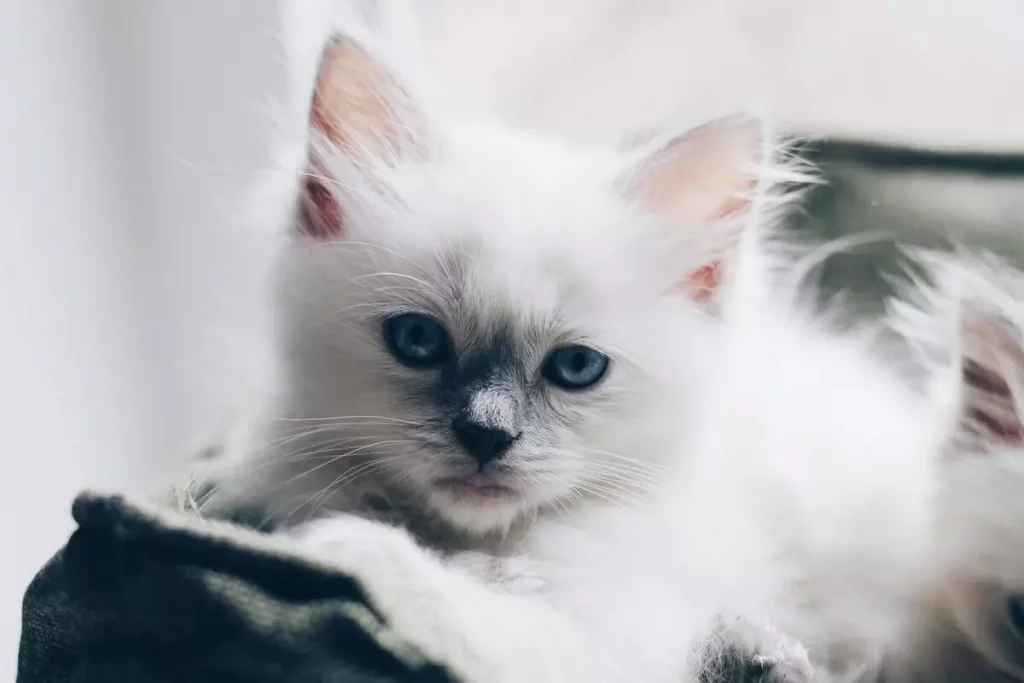
Can kittens leave mother at 6 weeks?
Vets and animal lovers do not recommend that you let kittens leave the mother at 6 weeks. This is too early to take a kitten home.
But that doesn’t mean a kitten won’t survive leaving their mother this early, they will. At 6 weeks of age, a kitten is physically independent of its mother and will survive being rehomed.
Become a Smarter Cat Owner!
Get the free weekly email covering the latest cat news & research.
Bite-sized in just 5 minutes.
However, it will not have received the social training necessary to thrive in a new environment. In fact, according to multiple research studies, the optimal age for separating mother and kittens is between 8 and 9 weeks.
Quick tip: Make sure you’re always feeding your cat friend with the most quality food that doesn’t contain artificial colors, flavors or preservatives.
The development of a 6 week old kitten
It can appear that kittens are ready to leave their mother at 6 weeks of age. After all, you will notice the following.
- The kitten is less dependent on its mother and keen to explore the outside world.
- The mother is exhausted from having to deal with several demanding kittens, with teeth!
- The breeder would like to spare the expense, time and effort of raising a litter of seemingly independent kittens.
- Freshly weaned kitten breath is the best smell in the world and the new owners cannot wait to cuddle their cute new treasure.
The characteristics of a 6-week-old kitten
The truth is that most 6 week-old kittens, no matter how cute they are, are anti-social, and it is best to let the mother deal with them at this age.
They have a false sense of self, and believe, much like human infants and toddlers, that they are the centre of the known universe. They know no boundaries and are a law unto themselves. They have no concept of where they end and others begin.
They explore the world with their mouths, including their teeth. Unchecked, they are a nuisance to all and sundry. They will destroy property, and bite hard, hurting their mother, siblings and any humans or animals they come into contact with.
Their emotions are unchecked, they have underdeveloped cognitive abilities and are physically inept. They are in the ‘fight, fright and delight’ phase, and will respond disproportionately to most new stimuli.
They love unconditionally and have no concept of danger. They display unbridled joy, unexplained anxiety, and more disturbingly, aggression and possessiveness.
Size and strength determine the pecking order. The larger kittens think they are invincible and smaller kittens have to work harder to get what they want. That is why the runt of the litter is often the feistiest.
They will discover the sound of their own voices and delight in using them, to yowl, meow and hiss, for no apparent reason. In fact, hissing can start as early as this age, but typically from 7 weeks onwards.
A pack mentality develops. If one hisses, they all hiss. If one chases something, they all follow suit.
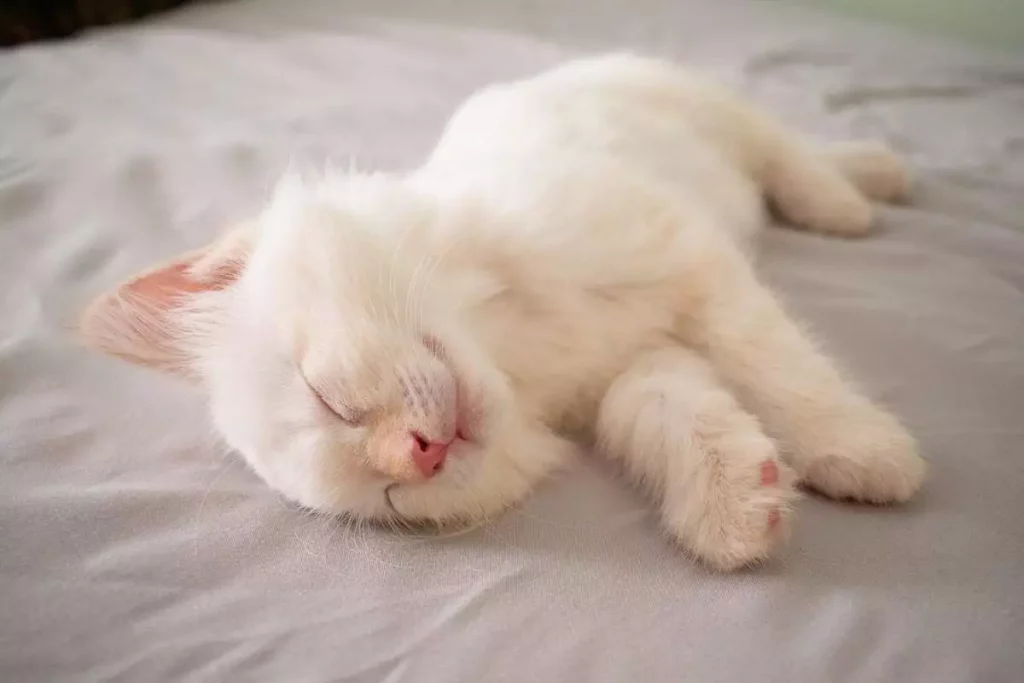
What happens if you take a kitten home at 6 weeks?
If you do end taking a kitten home at 6 weeks of age, be prepared for some issues. There are problems that arise if kittens are improperly socialized, and they can’t do if taken from their mother this early. It’s also unlikely they will come with papers.
If this crucial phase in their development is not handled correctly, the cat could end up with long term behavioral issues.
- The kitten will not cope on its own. It is not able to self-soothe and will suffer from separation anxiety.
- It will not learn patience and will become easily frustrated, leading to destructive behaviour.
- It will lack confidence and exhibit signs of fear aggression and food possessiveness.
- It will generally indulge in attention-seeking behaviour.
Essential factors for development
Three essential processes are needed at the crucial 6 to 9 week stage. Kittens need to be socialized by their mother and siblings, and have appropriate human contact, in order to form happy relationships in their new homes.
They also need to be able to adapt to various strange stimuli, such as noises and different textures and surfaces.
They should be thoroughly weaned off their mother’s milk and introduced to solids so that the transition to their new homes is less traumatic.
If a kitten leaves their mother as early as 6 weeks, all of the above can happen. The kitten will also miss out on important interaction time with its mother and siblings.
Quick tip: One of the healthiest cat foods available is Royal Canine cat food, as it is one of the only brands containing prebiotics and highly digestible proteins support optimal digestive health.
Interaction with the mother
When kittens are six weeks old, a mature, healthy mother will change roles from being primarily a nurturer to that of disciplinarian.
She will force her offspring to be weaned by growling at them when they attempt to suckle.
She will teach individual kittens and the litter as a group that excited behavior and excess noise is unacceptable.
Dominant kittens will be taught compliance and submission by forcibly getting them to roll over onto their backs. This behavior will help them survive if they encounter strange cats who are aggressive.
By asserting her authority, the kittens learn that there is a social order or ranking beyond themselves.
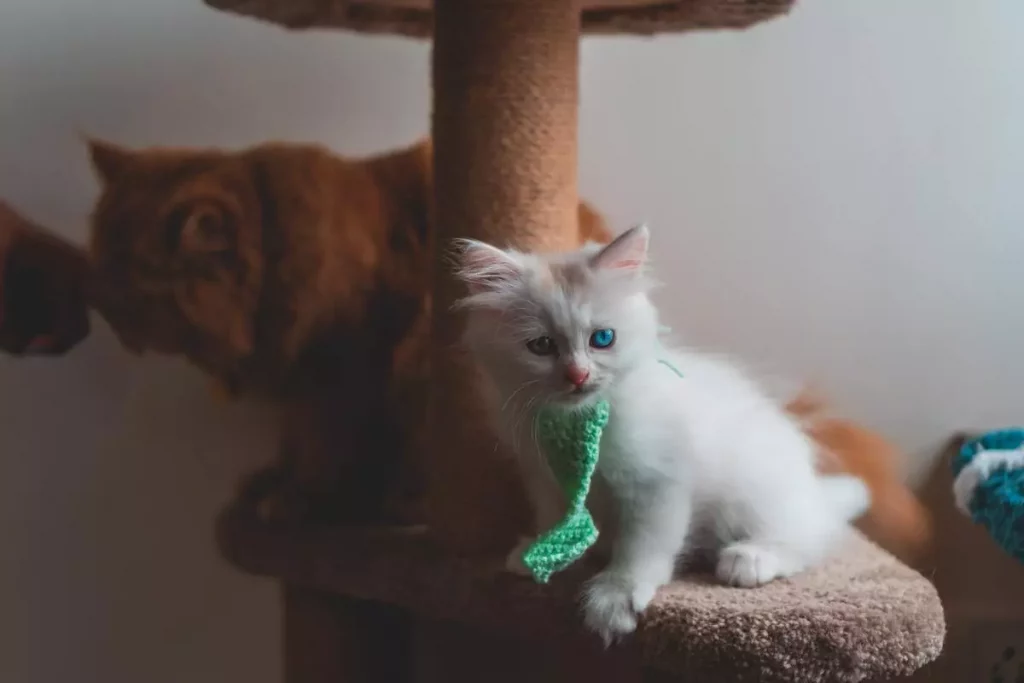
Interaction with siblings
By spending a few weeks interacting with their littermates, cats understand what it is to be a cat. They practise adult behavior on their siblings by mimicking hunting, stalking and chasing.
It is from their siblings that they get feedback on how hard they are biting and what will be tolerated.
They learn to share and compete for resources such as food, toys and attention.
They develop a tolerance for touching, jostling and rough play and learn to communicate appropriately. This is when they learn what growling, snarling and crying mean.
Large and dominant kittens should be separated to prevent bullying behavior and to boost the confidence of the less assertive kittens.
As you can imagine, these are all important developmental aspects which a kitten can miss out on if they leave their mother early at 6 weeks.
Quick tip: Putting cat hammocks next to a window can be an amazing resting place for your cat, and I highly recommend getting one.
Interaction with humans and other animals
If the kitty’s primary adult relationship is going to be with humans, it is essential that it be handled firmly and with affection by various people during this period.
Related: How much should you be feeding your kitten.
Much like the interplay with its siblings, this handling lessens the anxiety of being approached and touched by other humans.
This helps the kitty to trust humans and to develop bonds other than those with other cats. It also reinforces the concept of a social order and ranking that includes cats, humans and other animals.
Kittens can also be introduced to other non-aggressive animals. They must not be allowed to chase or bite them.
Food and hygiene
A responsible breeder will start weaning a litter of kittens off their mother from the age of 4 weeks. Their diets will be supplemented with solids so that their digestive systems adapt to life without their mother’s milk by the age of 6 weeks.
A bonus would be if they were taught to do their ablutions outside and not in the house. This is easily achieved by taking the kittens outside to do their business every time they wake up from one of their numerous daily naps.
Introduction to various stimuli (the big wide world)
Kittens naturally enter a fear stage at around 9 weeks. It is essential that they be introduced to a range of strange sounds, textures and surfaces during the socialization phase, in order to lessen the trauma of the fear stage before this.
Noises could include human voices, cats hissing, doors slamming and high-pitched sounds such as wheels squeaking.
Related: Why does my cat sleep on top of me at night?
During exercise time they could be made to play on surfaces that include sand, grass and possibly shallow puddles of clean water.
6 week old kittens should not be allowed to explore unknown territory without supervision. They need a designated place in which to play and a safe place to rest.
A happy kitten
A well-adjusted kitty should show the following characteristics at the age of 8 to 9 weeks of age.
- He or she should be fully weaned off mother’s milk and have a digestive system that is accustomed to solid food.
- He will understand its position relative to humans and other animals, and be able to adapt to new relationships.
- He should cope when left alone, without being anxious or resorting to excessive whining or destructive behavior.
- He should feel secure in terms of its physical safety, access to food and sharing objects such as toys and bedding.
- He should be curious but not reckless, and confident without being aggressive.
- He should communicate appropriately, for example, growl to warn and hiss at danger.
- He bonus would be if it were toilet trained.
Conclusion
It is well worth following the science regarding a kitty’s development during the crucial period of 6 to 9 weeks. Well-socialized kittens make enjoyable pets in the long term. They are conditioned to deal with multiple social situations and are less likely to react inappropriately to new surroundings.
Based on what I’ve learned and researched, the earliest a kitten can leave its mother can be 6 weeks. But, if you do this it’s cruel and can manifest into problems in the cat’s later months and years.
Instead, please don’t take a kitten home at 6 weeks. Don’t let them leave their mother until they are at least 8 weeks of age… and there’s even some laws about this!
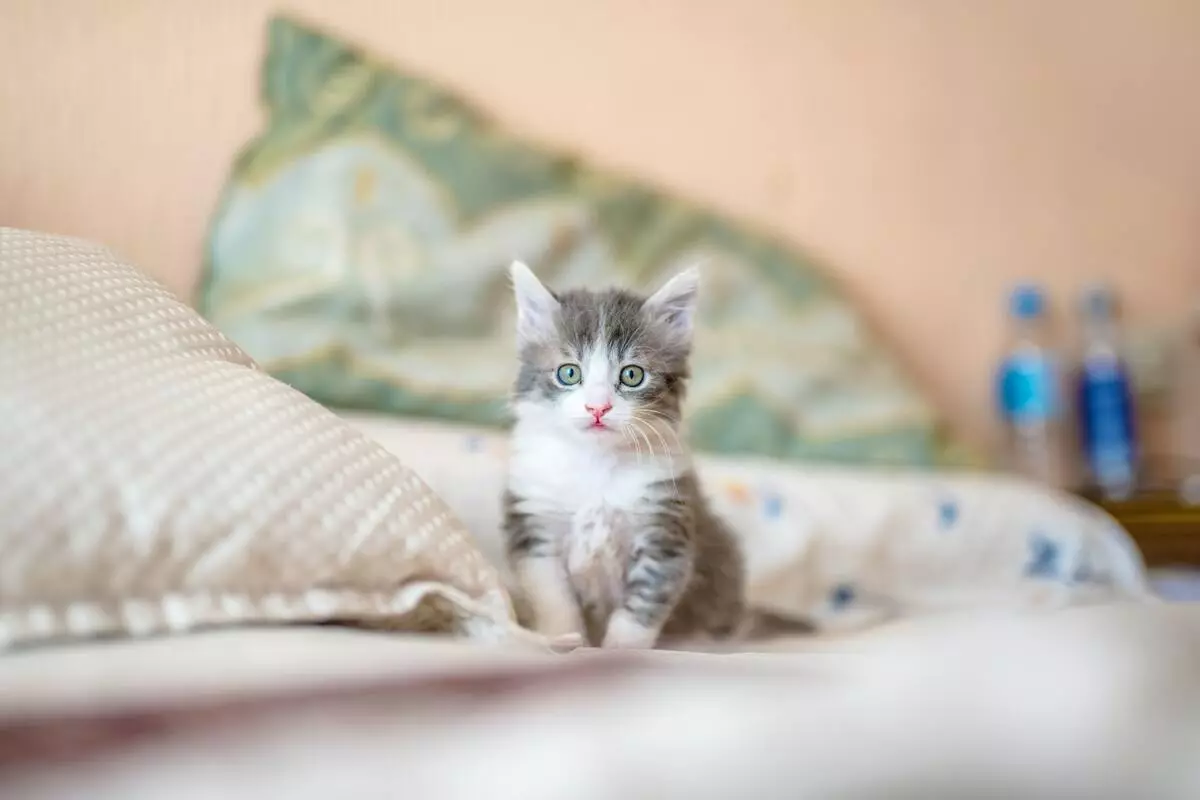
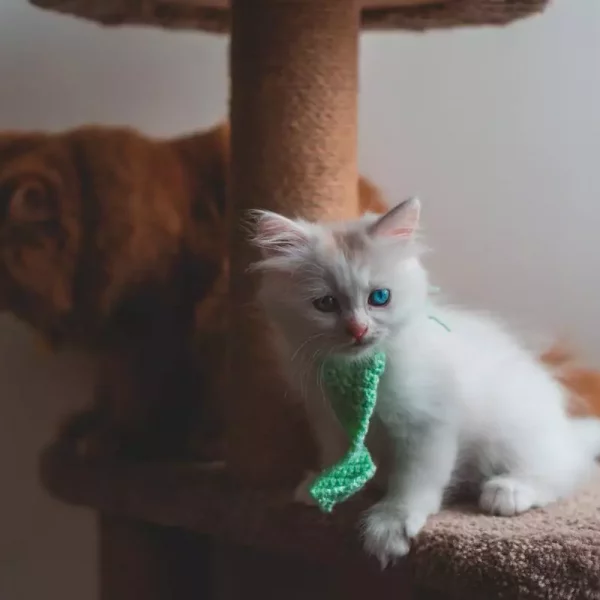

Leave a Comment